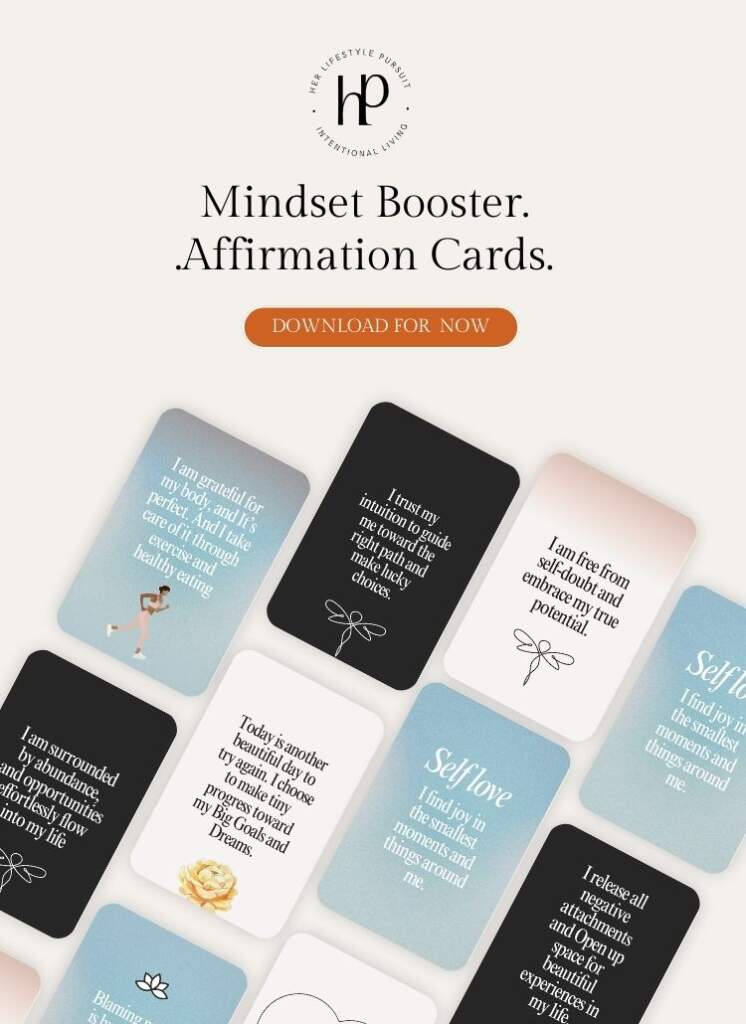Feeling stuck and need to improve your life? These are toxic habits that may be holding you back and tips on how to break these toxic habit cycles to become happier and improve your life.

At some point in life, you’ll desire to become better. You want to make a better income and maintain good health to avoid frequenting the hospital.
If you’re self-conscious, the first thing that comes to mind is starting new habits, even though you’re still stuck with your old habits.
Holding onto toxic habits is like filling your palms with stones while “hoping and praying” to collect gold into the same palm.
You and I can agree that it’s impossible.
You will need to drop the stones to pick up that gold. Else, it will never fit. In the same way, it applies when forming new good habits.
First, You must drop your old toxic habits and fill those spaces with good habits to improve your life.
However, as promising as forming new habits sounds, it’s always challenging to let go of toxic habits; forming new habits is not automatic.
At first, you’ll start, fall, and start again.
The focus should be getting 1% better every day.
Otherwise, these sneaky toxic habits will keep you from blooming into your best self.
In this blog post, you’ll find a list of the 12 most toxic habits to quit that may be holding you back and how to identify good habits to replace them so you can get 1% better daily.
Before that, what are toxic habits? How do you know a habit is toxic?
Toxic Habit Meaning?
First, a “Habit is a behavior repeated enough times to become automatic” – James Clear.
Therefore, toxic habits are harmful behaviors repeated enough times to become automatic and negatively impact your overall well-being, relationship, and quality of life.
Some examples of toxic habits to quit are constant negative self-talk, always saying yes, being in an unhealthy relationship, procrastination, always wanting it “perfect,” etc.
Toxic habits are the “little, unharmful” negative daily routines that never “mean anything” until they become a habit and affect your overall quality of life.
For example, if you hurt someone once and fail to apologize, it’s not your habit; people around you may even make excuses for you while nudging you to apologize.
But if you repeatedly do that to the next 3-4 persons around you.
Automatically, people start seeing you as an arrogant “brat” who will not admit your wrongdoings and apologize.
You’ll become that person who hurts others and never apologizes.
The truth is, toxic habits don’t start immediately; it’s always an accumulation of daily routines and patterns.
Kindly note: this blog post isn’t about judging you but showing these toxic habits you should eliminate to improve this year.
Without further ado, here’s a list of toxic habits you need to change to enjoy a happier and better life.
This post may contain affiliate links, which means I’ll receive a commission if you purchase through my link, at no extra cost to you. Kindly read the full disclosure here.

12 Toxic Habits to Quit To Live Happier
1. Negative Self-Talk
Do you always speak negatively about yourself?
“I’m bad at finding a good partner that will treat me right; I’m so unlucky; maybe if my skin looked this way from birth, I would be happier.”
“Oh, I’m not beautiful enough, I can’t achieve my dreams, I’m dumb, nothing works for me, I can’t be an organized person.”
Here’s the truth: if you always put yourself down, no matter how others praise you, you’ll never find yourself worthy of anything good and will always feel stuck in life.
Negative self-talk is one of the most toxic habits that can hold back many aspects of your life. It reflects in how you treat yourself and permit others to treat you.
For example, constantly telling yourself you’re not beautiful or good enough will make you less confident.
When you lack self-confidence, you’ll allow others to mistreat you.
You’ll feel it’s a trophy when others give you attention.
You’ll also lack the confidence to speak up and give your ideas and opinions at work because you feel unworthy.
Negative self-talk is the worst because its ripple effect in our lives is so significant, and it’s usually born out of our insecurities, lack of self-love, past mistakes, and trauma.
Conversely, if you always talk negatively about yourself, it’s time to let go. To stop talking negative about yourself;
- Discover Your Trigger
Is it trauma, you holding on to the past, your insecurities, or what you’ve been hearing people say about you? Because you can’t get better if you don’t handle it at its core.
Once you discover your trigger, get the right help. If you need counseling, go for it. If it’s your past mistakes holding you down, forgive yourself wholeheartedly, but if it’s your insecurities, address them.
- Use Positive Affirmations
Consistently use positive affirmations to challenge negative self-talk daily.
Positive affirmations are powerful and can reframe your mindset.
Start by listing areas where you constantly speak negatively about yourself and using positive affirmations to counter them.
Here are some positive affirmations for you: lucky girl affirmation, affirmation for self-care, and funny positive affirmations.
- Practice Mindfulness
- Engage in self-care self-care activities
- Surround yourself with people who see the best in you.
- Trust and love yourself more.
- Treat yourself with kindness, mercy, and compassion.
2. Quit the Toxic Habit of Focusing on the Past
Focusing on the past is a tricky, toxic habit that holds you from flourishing in the present or enjoying the present moment.
When you focus on the past, you’re in a loop of constant self-judgment, guilt, regrets, and many “I should have.”
But the past is called “past” for a reason; you can neither change nor erase it.
However, you can learn from it and make better decisions for your future.
How to let go of the past;
- Be in the present and focus on what’s happening right now.
Simple things like taking deep breaths or looking at your surroundings can help, and finding joy in the simple pleasures of life can help you let go and be present.
- Forgive yourself and let go of your Mistakes – If you’re holding on to your past mistakes and regrets, it’s tough to let go and truly forgive yourself. Holding onto your mistakes and grudges makes you an enemy of your joy.
- Ask for Forgiveness and Forgive Others
Perhaps you offended someone and haven’t found the courage to seek forgiveness and make peace with yourself and others.
When you ask for forgiveness and forgive others, you allow peace into your life.
- Make gratitude a lifestyle – count and celebrate your blessings, small and big wins.
- Learn from the past and grow to live without regrets.
3. Jealousy
When you allow jealousy to seep into your life, it destroys your relationship with others, your self-confidence and peace of mind, and fuels insecurities. It keeps you on the wheel of negative emotions.
Jealopisy is a toxic habit that starts without you knowing.
At first, it feels good to desire what others have until you begin obsessing over them and what they have.
Afterward, you become too busy eyeing what others have, focusing less on your own journey.
Don’t get me wrong; there’s nothing wrong in admiring what others have.
There’s a thin line between admiring and obsessively wanting to be like that person, and that’s when jealousy comes in.
Letting go of jealousy opens up space for trust, good vibes, and real connections.
Steps to stop being Jealous and thrive better;
- Become self-aware; being self-aware is one benefit of self-improvement that will help you keep yourself in check.
When you’re self-aware, you’ll recognize when jealousy and other toxic bad habits start creeping in.
- Count and celebrate your Wins: Instead of looking at what others have, focus on your wins, big and small. Celebrate yourself – you’re awesome!
- Compliment people genuinely, and be happy for their successes.
When you spread good energy, the universe brings them back to you.

4. Never Keeping to Your Words
Do you always go back on your words and promises?
Never keeping to your words often starts as a small mistake everyone overlooks until you become known for it.
When you don’t keep to your words, people will see you as a liar, untrustworthy, and lacking discipline.
I digress; there’s a saying where I’m from, if translated into English, it’s “Oh, you take her words seriously? If she says good morning to me, I’ll still check the time because it may be evening”.
It’s a derogatory statement for someone who lies or never keeps to their words and promises.
In essence, consistently failing to keep your word destroys the trust others place in you.
You know, trust is the foundation of any healthy relationship, be it personal or professional.
When people can’t rely on your word, it strains connections and leaves others questioning your reliability.
Also, if you’ve already fallen into the trap of these toxic habits, you’ll find these tips for never going back on your words helpful.
- Be the Person who Values your words – Tell yourself, “My word is my bond.” I must always keep to it.”
I value my words so much that I’ll not make a commitment I can’t keep. If I can’t, I’ll politely decline instead of not showing up.
- Become accountable to yourself and others.
- Quot being a people’s pleaser. People pleasing is the fastest way to say yes to everything and never show up.
- Set clear boundaries.
- Communicate openly your situation and schedule.
- Be disciplined.
5. Quit the Toxic Habit of Always Complaining
When complaining becomes a habit, you’ll always look for fault in others and every little thing.
It becomes your default response to challenges you face in life.
Excessively complaining is a toxic habit that steals happiness and peace of mind.
Thus making you feel easily irritated and never satisfied.
You’ll always feel dissatisfied instead of channeling your energy into finding solutions or enjoying the present.
Kindly note: just because you don’t want to be that person who complains a lot doesn’t mean you should not speak up when you’re uncomfortable with a situation.
There’s a fine line between speaking up when needed and always finding fault in everything or complaining about a situation you have no control over.
However, if you are already in the loop of the toxic habit of complaining, use these simple steps to break free;
- Decide firmly in your heart that you want a change and challenge yourself to break the habit of constantly complaining.
- Permit yourself to focus on finding a solution instead of dwelling on the problem.
- Surround yourself with positive people who find joy in little things because “positivity breeds positivity,” and negativity breeds negativity.
And when you find yourself with someone who complains about everything, discipline yourself not to join the cycle.
- Cultivate a gratitude mindset and become a positive person who sees the best in situations.
- Be self-aware; you don’t break out of a habit easily, stop immediately when you find yourself complaining.
6. Quit Unhealthy Competition with Others
Another toxic habit of quitting is unhealthy competition with others.
Unhealthy competition causes mental, physical, and financial stress.
If one is not careful, it can lead to debt and borrowing.
Competition in an unhealthy way goes hand in hand with jealousy, leading to dissatisfaction, envy of others’ achievements, and an unending urge to win at all costs.
Now, being competitive isn’t a bad thing, but you must first check where your zeal to win comes from.
Is it because you feel this person is beneath you and you must win?
Or do you desire to win to become better and achieve your goals?
You should introspect and find out why you feel that way.
Also, understand and accept that the only person you’re in constant competition with is yourself. You have to be better than the person you were yesterday.
Competing with yourself is a factor in self-improvement.
Surround yourself with people who support and appreciate you for who you are rather than what you accomplish.
7. Perfectionism
Often, procrastination starts as a minor delay, a brief pause in action, but quickly stops you from achieving your goal.
Procrastination is a toxic habit that steals time and robs us of rich experiences and tasks we could have accomplished.
Admittedly, no one is perfect, and if you sit back waiting for “the right time to get it done.” You’ll only realize later that “done is better than perfect.”
For a business owner, procrastination will cost you time, money, growth, income, and skills.
If you’re building new habits, procrastination will slow your growth and, eventually, the reward you’ll get from achieving your task.
I’ve learned that embracing imperfection is not about lowering standards but acknowledging the beauty of growing and the power of evolution.
To break free from perfection’s tight grip, set realistic goals and celebrate small victories along the way.
You’ll build momentum and confidence by celebrating every win, no matter how minor it seems.

8. Unhealthy Relationships
Keeping unhealthy relationships is a toxic habit that affects you mentally, emotionally, and physically.
Who are the people you have around?
Do they help you grow, become better, or improve the quality of your life?
Are your relationships nurturing or draining?
Are the relationships you keep aligning with the person you hope to become?
Personally, ever since I let go of toxic people, relationships, and things that disrupt my peace and mental health.
I’ve become happier and can focus my energy on people that truly matter.
As much as having people you can call “your people” is essential because no one is an Island.
Surround yourself with positive people who truly care about your growth and happiness.
It’s better to be alone than in a crowd and still feel lonely.
Remember to evaluate your relationship, be self-aware, and have a yardstick for measuring whether your relationship and friendship are healthy enough to continue.
Also, quit talking to people who constantly put you down, whether in romantic or platonic relationships.
Most importantly, always set healthy boundaries with others.
9. Saying Yes to Everyone and Everything
Saying yes to everyone and everything doesn’t make a “nice” person.
In reality, it makes you a pushover and a person without boundaries.
Most times, the habit of always saying yes comes from being a people pleaser, lacking self-confidence, not prioritizing yourself, and always wanting to be there for everyone, every time, even to your detriment.
But if you learn to set boundaries and say no without feeling, you’ll grow, become more productive, and only engage in things that make you happy.
Likewise, when helping others, you help them because you want to, not because you were guilt-tripped to do it.
10. Overworking Yourself
I used to be guilty of overworking myself.
Being called a workaholic seemed like a good title until my mental and physical health took a hit.
Soon enough, I found myself stuck in a mental slump.
I became unproductive and lost joy in doing the things I love doing.
It took journaling and searching myself deeper before realizing I was experiencing burnout from overworking myself.
I slowly began including self-care activities, short breaks, and rest periods into my daily routine.
Understandably, we need to work to survive, especially with unending inflation and an increasing standard of living.
However, being a workaholic is a toxic habit to quit.
Kindly note that being called a workaholic is not a flex.
Here’s what you can do to break the toxic habit of overworking;
- Decide you want to change and understand why – the truth is, you won’t quit being a workaholic in a day.
For instance, one of my friends is a chronic workaholic and can’t go a day without working at least 6 hours.
One day, we had the “genius idea” of keeping her away from her devices, and she began experiencing “withdrawal syndrome” in less than 2 hours. Crazy right?
Let’s be honest: some people overwork themselves not because they love working so much.
But because of the culture of seeking validation from others or themselves, “Oh she works so hard, oh I work so hard’ is why they feel taking a break will send them 2 steps backward.
Suffix it to say that breaking free from overworking requires discipline, commitment, and prioritizing health and well-being.
- Prioritize and make self-care a non-negotiable routine. You can curate a better morning and evening routine that allows you to unplug and relax.
- Set boundaries between work and personal life and learn to say No.
- Delegate tasks where possible.

11. Quit Unmindful Consumption
What are the things you consume daily?
Are they good for you and your health?
Ask yourself this question: if I want to be healthier, will these things I consume help me live healthier?
Do you consume alcohol, smoke regularly, or constantly take in substances that are bad for your health?
Perhaps yours are not physical; may you consume content, follow social accounts, and read things that don’t reflect or help you improve your life anyway.
Unmindful consumption of substances and content is a toxic habit that reflects on the quality of our lives. To break from this habit, you should;
- List the habits you want to quit and decide it’s time to let go.
- Do a Detox Challenge – engage in both digital and physical detox.
- On social media, unfollow and mute accounts that don’t help you become better. Also, limit the amount of time you want to spend on social media.
- Avoid going to your phone first thing in the morning. Instead, fill your morning with a better morning routine promoting self-care, mindful activities, and self-improvement.
- Quit drinking, smoking, and taking unhealthy food, soda, and substances are bad for your health.
12. Blaming Others Every Time
“Show me someone who blames others for his mistakes every time, and I’ll show you a man who never grows or improves.”
Blaming others every time for how things turn out will strain your relationship with them and prevent you from learning from your mistakes.
When you blame others every time things don’t go according to plan, you absorb yourself of responsibilities, and it’s a toxic habit that prevents you from growing.
Besides, mistakes are a part of life; they are a tool for growth, whether professionally or personally.
One of my life principles is learning from yesterday to improve today and tomorrow.
I don’t believe I should make my mistakes to learn from them.
Yes, I have made mistakes in life and learned from them.
Another guiding factor for me is looking at those who have been in similar situations and learning from them without making my “own mistake.”
Mistakes are experiences and an inevitable part of life, so accept and learn from them instead of blaming others.
What you can do instead of blaming others for everything;
- Take a deep breath and be self-aware whenever you feel like blaming others for how things turn out.
- Be responsible for your actions and hold yourself accountable at all times.
- Focus on finding a solution to the problem instead of blaming others.
- Be kind and empathetic to yourself and others around you.
- If you’re a leader, lead with kindness.

Finally on Qutting Toxic Habits to Become Happier
Quitting toxic habits is not a one-off process. It’s more of a journey where you’ll fail, make mistakes, and start again.
Use the 1% rule to get better every day instead of hoping to change everything at a time.
Another thing worthy of note is loving and trusting yourself to make good choices that will improve your life.
Therefore, learn to trust yourself, be kind and compassionate to yourself, and focus on becoming a person with good habits.
Always remember, You’re enough and can do this!
Finally, what toxic habits will you be breaking? Have you ever broken a bad habit? How did you do it? Let me know in the comments.
More Tips post on Self Improvement for you
- How To Simplify Your Life and Be Happy in 2024 (+Things to Get Rid of)
- 100 Easy Ways to Organize Your Life (Every Aspect)
- How to Wake Up Early at 5 Am Every Day and Not Feel Tired (Step by Steps)
- 15 Best Steps on How to Journal for Self Growth & Better Yourself
- 120 Personal Growth Journal Prompts that will Transform your life in 2024
- How to Get Out of Slump & Feel Motivated Again (Ultimate Guide)
- 100+ Things That Make Me Happy & Bring Simple Pleasures
Found this post helpful? Save on Pinterest








